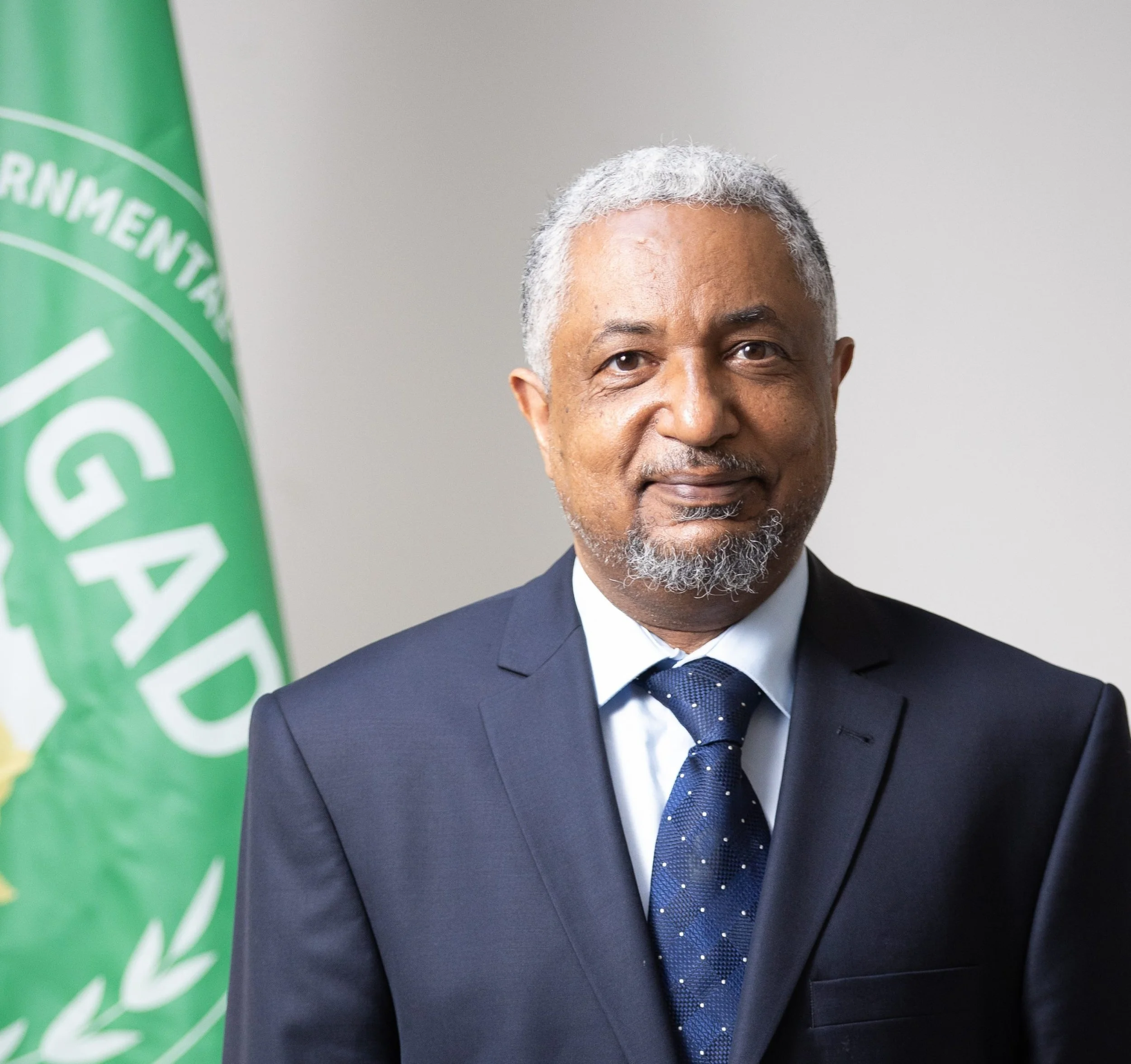
Marking 25 years of MSc Violence, Conflict and Development
Professor Chris Cramer and Professor Zoë Marriage discuss the changes in violence, conflict and development in the 25 years since the creation of this groundbreaking course.
This year SOAS will be celebrating the 25th anniversary of the groundbreaking MSc Violence, Conflict and Development. To mark this occasion, SOAS World spoke with Professor Christopher Cramer who founded the course in 2000, and Professor Zoë Marriage, who taught on and convened the course in various capacities for around 16 years.
What was the vision for MSc Violence, Conflict and Development?
CC
In the mid-90s there was a renewed interest in thinking about violent conflict beyond simply the framework of the Cold War and the idea that all conflicts were proxy wars. There were a lot of humanitarian issues with wars in Yugoslavia and in West Africa and the idea for the course sprang from the fact that the end of the Cold War did not end violent conflict. It seemed to be leading to a decline but there were still important conflicts taking place.
There was a series of questions about the relationships between development, violence and violent conflict, and there was a rising interest amongst actors and academics in development in trying to think through what these relationships were, so that was the vision.
I put together this new Master’s at breakneck speed in a few months. Although there were modules in other universities dealing with these things, there was no degree; this was a pioneering programme course. It started in 2000/2001 with 25 students and it grew from there.
I think we've delivered on the vision. The demand enabled us to build a team of people in the department including Professor Jonathan Goodhand, Professor Zoë Marriage, Professor Laura Hammond, and Dr Tania Kaiser among several others. This is a powerful concentration of expertise and interest in the area.
We were pioneering and we’ve taught a large number of alumni who work in the field. People in the Foreign, Commonwealth and Development Office or international organisations, tell us that they keep coming across people who have done this degree. We've also built up publications and research projects that are linked to the degree programme and its interests.
What makes the MSc distinctive?
CC
Before we started there were programmes and degrees in Peace Studies, War Studies and Development Studies, but there was nothing that brought these together fundamentally from a development perspective.
In the core course, there is a political economy perspective, not just economics and not just political science. Political economy is a difficult thing to define, but it's an interdisciplinary, historically minded, and a materialist perspective on these questions. It starts from the idea that all economic activities take place in contexts defined by power relations.
We don’t only look at the relationship between development and large scale armed conflict, we look across a continuum of violence. That might include at one end genocide or large scale armed conflict, but we also look at intra-household / intimate partner violence, or riots or pogroms. We ask the same questions across that continuum: what are the relationships and how do those relationships interact.
ZM
It's always had the idea of the political economy of violence at the centre. All the academics involved have different perspectives on what that means due to their disciplinary background. I've always seen it in political terms – to see politics and power as an economy in itself that's moved around by violence. Through violence and conflict, we see changing distributions of power.
We've never focused on wars. We’ve focused on violence and conflict, but that doesn't have to be a war. This comes out both in the way that we teach, but also the outcomes. We ask students to do a group presentation and it's interesting to see how they perceive violence and conflict having studied it for two terms with us.
They may look at gender violence for example, not necessarily in a war zone. They may look at war zones, but they don't necessarily look at the war. They look at elements of the war - a specific group of people and how they're disproportionately affected.
For us, the reason that some people are oppressed, some people win and some people lose is ultimately mainly because of violence. Having lots of money helps, but having lots of money is closely connected with violence. In a lot of the world, through a lot of history the processes of conflict are essentially directed by who has the more violence to inflict on the other.
We look at violence and conflicts in a conceptual way as the existence of incompatible goals. About 15 years ago I set up a partner module called Security examining the same threads, but using a security lens. We now cover Artificial Intelligence, surveillance, the breakdown of democracies and climate change.
How will cuts in international aid and its effects be reflected?
CC
Throughout the last 25 years, we've shifted the structure and the content of the course to reflect changing dynamics in the world and this is just one more shift.
These recent trends in aid cuts – and it’s not just USAID, it’s been going on for some time with Sweden and the UK etc – will possibly not cause conflict, but might feed into the dynamics that underpin violent conflict, which we need to be alert to. It's going to mean programmes like this are, in fact, more relevant than ever.
ZM
The course has always been centred on examining processes of violence and conflict rather than aid, but amongst which is the provision of aid. We’ve been a bit critical of the aid industry as it has always been unaccountable and could be shut down at any moment, which it now has.
Why do people want to study VCD and what do alumni go on to do?
CC
We have alumni in positions in institutions internationally who are highly involved in development issues. Where people might have imagined a job in the FCDO, they might be more likely to go to think tanks or philanthropic organisations. It may well be that private sector organisations also have to deal with development, violence and conflict.
It is distinctive about SOAS in general and certainly our department, that we set store by understanding specific contexts and places. In a world of big data and of risk aversion where people are working remotely or living in compounds, that deep understanding of context, whether in Myanmar or Sudan or wherever, is something we try to build in our students and remains highly relevant.
ZM
Our students often have a notion of working within the area of conflicts and making a difference. No-one comes in with a casual interest in violence; you have to be committed and passionate; there’s a lot to deal with as it’s a devastating program. Students often want to get involved in conflict and are essentially looking to either alleviate the suffering or work on interventions.
With the rapid demise of USAID and the longer-term constraints affecting organisations working in conflict zones, whether there will still be the student optimism we don’t know. We need to think about how understanding conflict can take people to different places.
“Coming from a region that was experiencing political changes and situations of conflict and weak governance, the MSc programme aligned with my interest in unpacking structural violence and the political economy of conflict, and institutional reforms.”
Nuur Mohammed Sheekh - Alumnus
How has the study of violence conflict and development changed over the 25 years of the course?
CC
One change was the growing post-Cold War confidence in the idea of liberal peace building, and the progressive collapse of that confidence. There’s far less confidence now, even in Western organisations and nobody's sure what will replace it.
Some say it's great, some say it's terrible, because it allows for raw power politics and cynical interests instead. At best, there's a phase of productive incoherence where new and more constructive ideas may emerge and some learning might get shown.
The growth of big data is interesting. There are cognitive data sets on everything, but it's not clear that it has led to any genuine new understanding. It suggests that the data and the techniques are great, but we need to combine them with deep history and specific context.
There has been a domination of a particular form of economic thinking, which is quite narrow; an idea that you can explain everything using the toolkit of orthodox economics. This generated resource allocation and policy priorities and was powerful and influential. I think people now understand that although these economic issues matter hugely, there is a richer appreciation for the need for interdisciplinary and multi-disciplinary understanding; a growth of interest in complexity thinking.
ZM
All of us have moved a long way from where we started. I wrote a book on Congo, published over a decade ago, from a very VCD perspective looking at the way that people understand security, at international intervention, and the experiences of the Congolese people and the history of violence. I moved to looking at the aesthetics of violence through an examination of culture in north-eastern Brazil, informed by struggle and resistance.
In some senses, we should look at the aesthetics of violence. It's incredibly significant particularly as we're living in an aesthetic-drenched world of online content. It’s about how it is represented in the post-fact, post-truth world that we live in. Understanding the representations of violence is more significant than ever.
Where can you find reliable information on violence, conflict and development?
CC
If you want information about conflicts– in Sudan or Ethiopia for example – step one is don't trust anything on Facebook or Twitter. You can use them, but don't trust them.
There are strong arguments that information and technology are weaponized, they are part of the new way in which war itself is evolving. There’s an accusation that in both Ethiopia and Myanmar, social media was actually responsible for stoking conflict in many ways.
Rather than saying look at a particular source, it's about triangulating. It's about needing to look at different sources and keep a distance from them all. However, the Peace Research Institute in Oslo, the Uppsala Conflict and Data Project in Sweden and ACLED (Armed Conflict Location & Event Data) are specialist monitoring and tracking organisations.
What should alumni know about the MSc in Violence, Conflict and Development and its areas of study?
CC
The MSc in Violence Conflict and Development is an inter- and multi-disciplinary programme, which draws a particularly passionate cohort of students every year. They’re very distinctive and very committed. In many ways it’s a horrible subject, but is a joy to teach.
ZM
People read about issues relating to development and often the violence itself gets squeezed out of the way the narratives are constructed. Violence is a way of forcing people, and that can be physical or it can be structural. Conflict is the existence of incompatible goals. By acknowledging these two things you can then look at poverty, industrialisation, agricultural policy, the pharmaceutical industry, and global capitalism and everything else and say: “It makes a lot of sense now.”
There is a special conference event on 11 June to mark the 25th anniversary of the MSc in Violence, Conflict and Development, and interested alumni are warmly welcome.
The afternoon will bring together alumni, academics, and practitioners to reflect on how the field has evolved over the past 25 years.You’ll hear from leading voices in conflict and development, including current staff and distinguished graduates. The programme includes panel discussions, networking opportunities, and a drinks reception. Whether you're working in the field or simply curious to reconnect, we’d love for you to join us.
“SOAS offered a cohort of lecturers from a community of practice who guided with a rare interdisciplinary lens rooted in critical theory and global south perspectives.”


